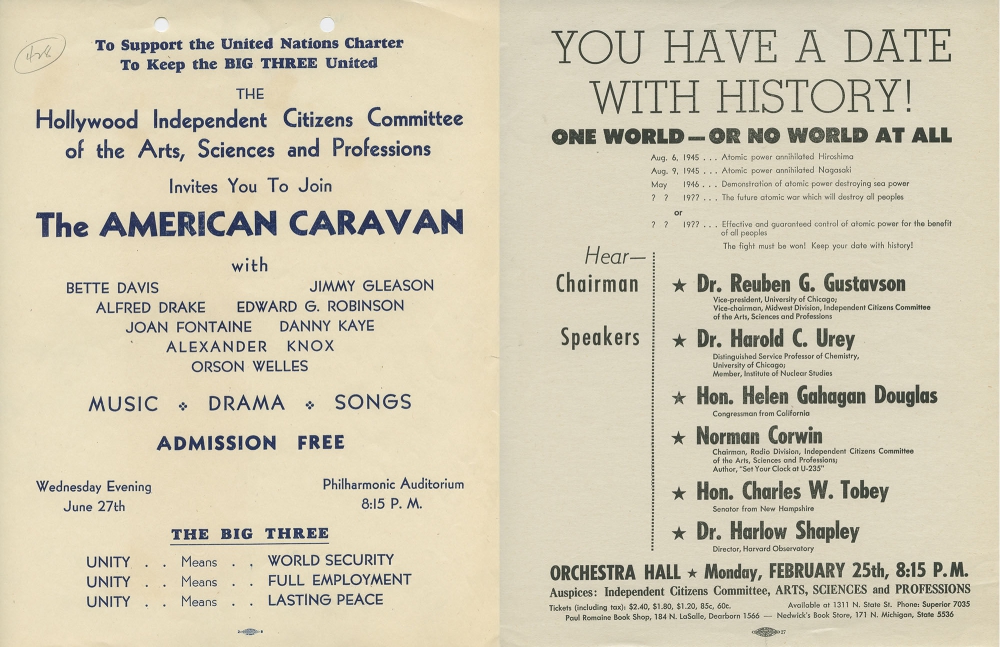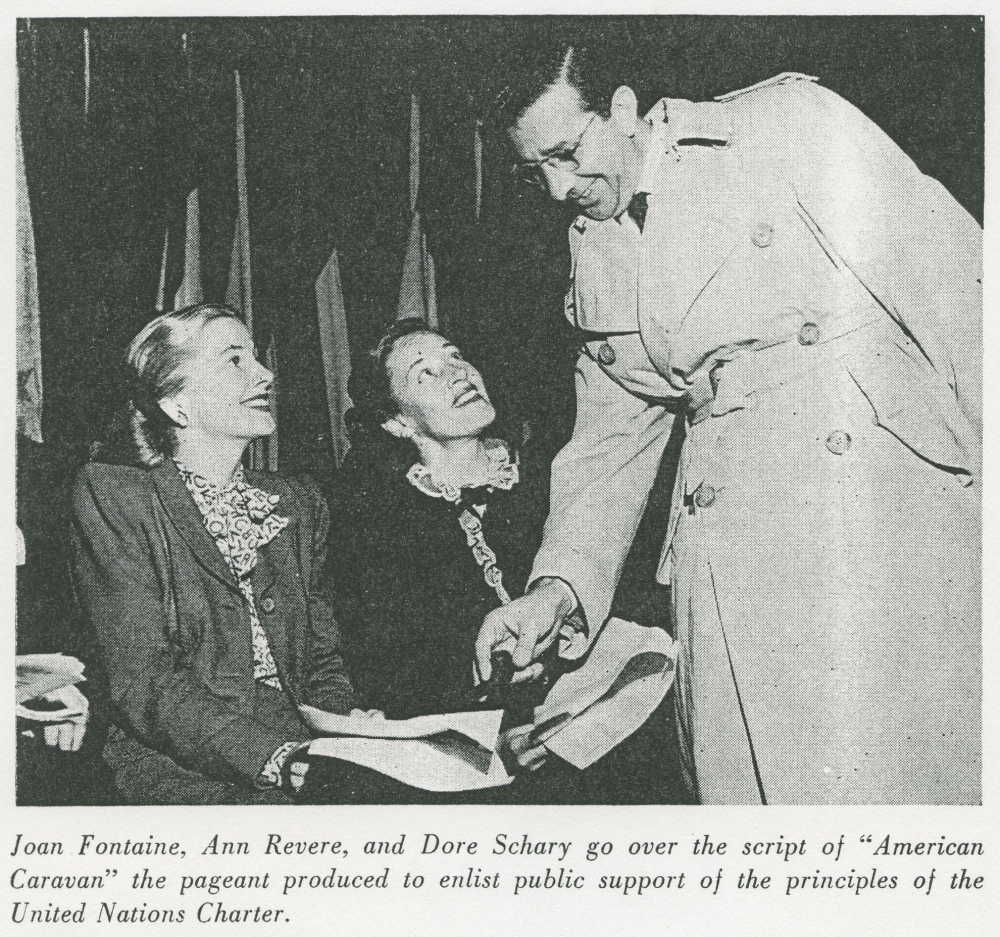The second major facet of HICCASP’s plan for peace was gathering public support for international collaboration through the soon-to-be-formed United Nations and the continued unity of the Big Three (the US, UK, and the Soviet Union). Using familiar tactics, HICCASP created pro-unity publicity materials, corresponded with and petitioned lawmakers, and held public events. A cornerstone of this latter effort took shape as “American Caravan,” a free entertainment program held June 27, 1945 at the Philharmonic Auditorium. Like “The Crew of the Model T,” “American Caravan” was also broadcast on radio as a public service program. Starring Rex Ingram, Joan Fontaine, Jimmy Gleason, Alfred Drake, Danny Kaye, Edward G. Robinson and others, the program was hosted by Olivia de Havilland.
The script of the program follows everyman Archie Smith as he seeks out people of different professions to understand the meaning of the word “unity.” Among those he meets are a children’s librarian, a soldier, a football player, a union man, and a doctor, all of whom share with him the importance of unity to their everyday lives, whether that unity takes the shape of workers’ solidarity or cells’ unified resistance to germs in the human body. Throughout, an isolationist dissenter offers a counterpoint to the pro-unity speakers and enables HICCASP to directly criticize the ideological position of their opposition. These discussions of the meaning of unity reach an emotional climax when the show’s narrator plays a recording of recently deceased President FDR’s thoughts on unity. The program is not without levity, however. An extended comedy sketch performed by Danny Kaye satirized the flip-flopping hysteria of ongoing news coverage of US/Soviet Union relations. The program concludes with a speech from California Assemblyman Albert Dekker calling for citizens to write their congresspeople in support of the World Security Charter, which established the United Nations.
Although successful in their support of international collaboration through the UN, HICCASP’s efforts to preserve Big Three unity produced far different results. Not only did the relationship between the US and the USSR continue souring until the start of the Cold War, a significant number of HICCASP (and later ASP-PCA and NCASP) members would find themselves under questioning for their friendly feelings toward the Soviet superpower.
Digital Documents:
Further Reading
Hanhimäki, Jussi M. The United Nations: a very short introduction. New York: Oxford, 2008.
Hunt, Micheal H., Crises in U.S. foreign policy: an international history reader. New Haven: Yale Uniersity Press, 1996. See Chapter 3, “The Origins of the Cold War,” 112-169.
Weiss, Thomas G., David P. Forsythe, and Roger A. Coate. The United Nations And Changing World Politics. Boulder, CO: Westview Press, 2006.


